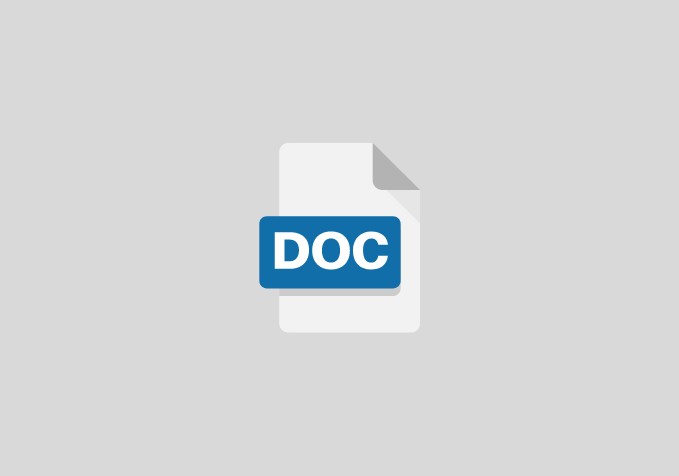Assessment of Material Management Strategies on Construction Sites
CHAPTER ONE
Objective of the study
The main objective of this study is an Assessment Of Materials Management Strategies On Construction Sites. Specifically the study aims to :
- determine method of material procurement practices on construction site
- determine the causes of material wastage on building construction sites
- identify the factors affecting effective material management on building construction site
CHAPTER TWO
LITERATURE REVIEW
MATERIALS MANAGEMENT IN CONSTRUCTION PROJECTS
Materials management is an important function in order to improve productivity in construction projects. Bell & Stukhart (1986) defined materials management functions which include planning and material take off, vendor evaluation and selection, purchasing, expenditure, shipping, material receiving, warehousing and inventory, and material distribution. The result of improper handling and managing materials on site during a construction process will influence the total project cost, time and the quality (Che Wan Putra et al., 1999). Proverbs et al. (1999) stated that costs for materials handling may range from 30 % – 80 % of total construction costs. In addition, Dey (2001) indicated that almost 60 % of the total working capital of any industrial organisation consists of materials costs. Therefore, materials management should be efficient in order to control productivity and cost in construction projects. There are many issues which contribute to poor materials management in construction projects. Zakeri et al. (1996) suggested that waste, transport difficulties, improper handling on site, misuse of the specification, lack of a proper work plan, inappropriate materials delivery and excessive paperwork all adversely affect materials management. Furthermore, Dey (2001) noted that the common issues related to materials management are as follows:
- Receiving materials before they are required, causing more inventory cost and chances of deterioration in quality;
- Not receiving materials at the time of requirement, causing loss of productivity;
- Incorrect materials take-off from drawing and design documents;
- Subsequent design changes;
- Damage/loss of items;
- Selection of type of contract for specific materials procurement;
- Vendor evaluation criteria;
- Piling up of inventory and controlling of the same; and
- Management of surplus materials.
PLANNING
Stukhart (1995) stated that the needs an appropriate materials planning to be done concurrently with engineering, construction and other project plans. He also mentioned that material planning would provide guidance for all the subsequent activities and that this could have a great impact on the project plan. The materials planning process covers the set up and maintenance of records and determines the target inventory levels and delivery frequency (Payne, Chelsom & Reavi 1996). Planning of access and routing of materials within a construction site has an important implication for the development of an effective materials management strategy (Faniran & Caban, 1998) particularly in terms of increasing productivity and profit, and facilitating the timely completion of construction projects (Wong & Norman, 1997). No contractor can therefore afford to take all material management plans concerning cement with levity.
CHAPTER THREE
RESEARCH METHODOLOGY
Introduction
In this chapter, we would describe how the study was carried out.
Research design
Survey research method was used to carry out this research because of its large population. Nworgu (2006) attested that a survey research is one in which a group of people or items is studied by collecting and analyzing data from only a few people or items considered to be representative of the entire group.
CHAPTER FOUR
RESULTS AND INTERPRETATION
CHAPTER FIVE
CONCLUSION AND RECOMMENDATIONS
The research has examined materials management on building construction sites. Findings shows that procurement of materials with requisition from site is more common with the contractors and its best practice of materials procurements for construction sites for effective materials management. The study also establish that the following: damage by mishandling and re-work due to poor workmanship, inadequate storage facilities on site, delay in material supply, inadequate supervision, poor site security, weather and other natural occurrence, alteration of designs, over ordering of construction materials, theft and vandalism are the causes of material wastage on building construction sites and the factors affecting effective material management on construction sites are as follows: design changes, lack of proper work planning and scheduling, inefficient workforce, fraudulent practices /negligence and corrupt practices, lack of security personnel, waste on construction site and lack of or inadequate storage facility. Furthermore, the research identifies the following as measures for effective material management on building construction site: employment of skilled craftsmen and operators, training of both management and other staff, employment of store keeper and security personnel; procurement requisition to specify quality, quantity and delivery time; ensuring proper planning and scheduling of building works, introducing material management at the design stage and consideration of weather conditions.
The study recommends that Contractor should make provisions for training and retraining of management and site personnel in order to improve their efficiency for effective material management and contractors should ensure the use of skilled craftsmen for their works and provide efficient supervision with professionals to ensure effective material management on building construction sites.
REFERENCES
- Abdul-Rahman,.H. and Alidrisyi, M. N. (1994) “A Perspective of Material Management Practices in a Fast Developing Economy; the case of Malaysia”.Construction Management and Economics.
- Formoso,L.T., Isatto, E.L. and Hirota, E.H. (1999). Methods for Waste Control in the Building Industry.Conference Proceedings organized by International Group for Lean Construction (IGLC) 26- 28 July, California.
- Hinkel E; Wiersma, W and Jurs, S.G (1988): Applied Statistics for the Behavioural Sciences. Houghton, Mifflin, Boston
- Khyomesh V. Patel (2011) Construction material management on project sites.
- Mohamed, S.F. &Anumba, C.J. (2006). Potential for improving site management practices through knowledge management, Construction Innovation: Information,Process, Management.
- Onabule, G.A. (1991). Options for Efficient Management of Construction Resources on ite. In Oluteju, B. (ed). Effective Contract Management in the Construction Industry.
- Seeley, I.H. (1997). Quantity Surveying Practice. London: Macmillan Press Ltd.


